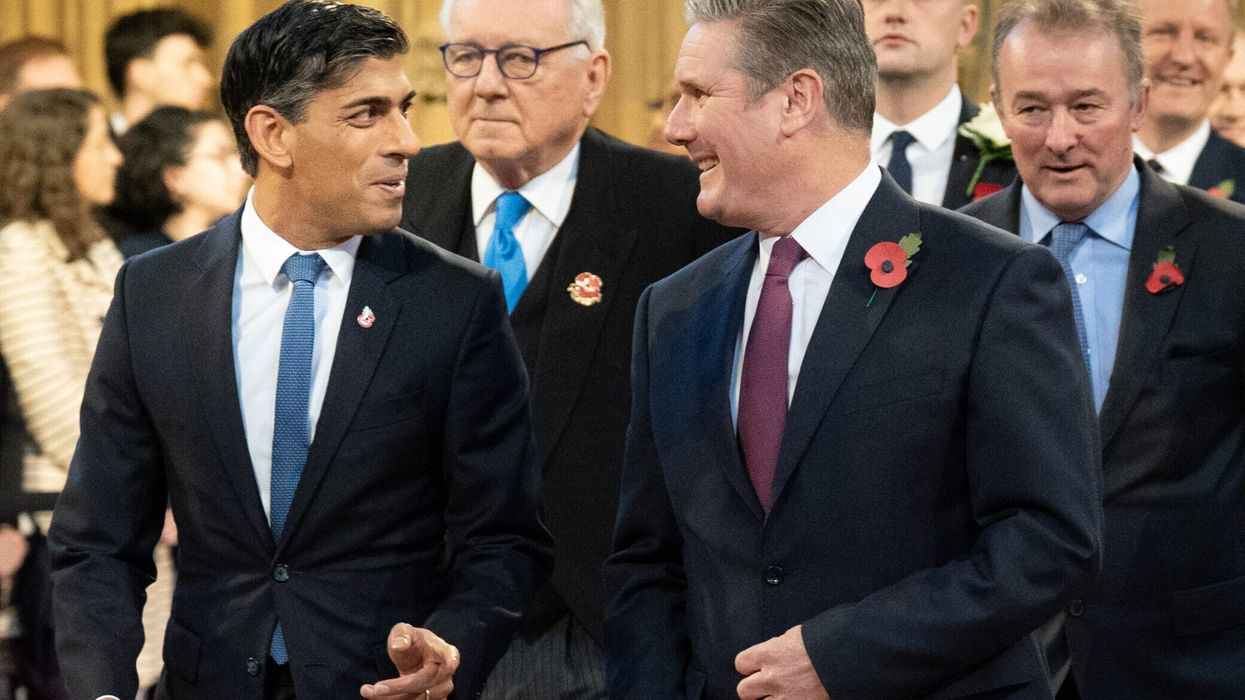There are probably still six months to go before the general election – but this Thursday’s (23) statistics from the Office of National Statistics are likely to be the final net migration scores of this parliament.
They are likely again to show net migration over double the level that it was five years ago. That is a political headache for a government that said those numbers would come down. So prime minister Rishi Sunak has been under pressure from his backbenchers to do more to cut immigration in these final months in office. But it is far too late now for the government to do anything else that could affect the pre-election headline numbers.
For one thing, the lag effect in calculating the data makes that impossible. This week’s figures will report the net migration figures for the year leading up to December 2023. Thursday, November 14, – just after America has chosen between Joe Biden and Donald Trump – is now thought the most likely general election date in Downing Street. Were Sunak to hang on another month, he could hold a December 12 general election on the fifth anniversary of Boris Johnson’s 2019 victory – meaning he would get one final set of net migration figures towards the end of the campaign in late November.
Those numbers would report on the year to June 2024. They could show net migration starting to dip below half a million, or perhaps just above it. It is doubtful whether that is an especially attractive headline for the government either. It will be May 2025, well beyond the general election, when the data comes out for the whole of this year.
The government’s message is that they are delivering this year the biggest ever fall in immigration. That is true – though their main method of delivering these significant reductions was to deliver the largest ever rise in immigration first. Trebling net migration to a peak level of 750,000 in 2022, before getting it down to just over half of that level, is unlikely to bring many plaudits from those who wanted reductions, while there are dilemmas of control if policy choices swing in such a volatile way from feast to famine.
The latest skirmish is over international students and post-graduate visas. The Conservative-led coalition scrapped the right of international students to stay and work for two years in 2012, to help keep immigration numbers down, then reintroduced this with some fanfare in 2021, declaring it a key foundation of a strategy to increase the number of international students to 600,000 a year. The aim was to compete with countries like Canada, Australia and the US to increase Britain’s share of a growing market.
The Migration Advisory Committee, having been sceptical of the blanket two-year visa offer in 2018, has now recommended that government should maintain it, if it wants to meet that policy aim. Its analysis is that significant restrictions on post-study visas would be a deliberate choice to shrink a university sector under financial pressure – unless government wants to increase domestic fees or taxpayer support significantly. Brian Bell of the Migration Advisory Committee reports that the restrictions on bringing dependents, for those on social care and student visas, have had a more dramatic impact than government expected.
So, both political parties face election dilemmas about what to say about immigration numbers in the next parliament.
Former Home Office minister Robert Jenrick and fellow backbencher Neil O’Brien propose recommitting to the “tens of thousands” target for net migration that David Cameron pledged on coming to power in 2010. That was dropped by Johnson in 2019, having proved impossible to meet. Offering voters the same number that the government thought of 14 years ago would seem to mainly highlight the broken promise. The next Conservative opposition, after the election, might adopt a similar policy again, once freed from the pressure of having to deliver it in practice.

That will be Labour leader Sir Keir Starmer’s challenge next year. Labour now says it wants immigration to come down – seeing net migration levels at 600,000 a year as unsustainable – without saying what its preferred level would be. Labour will inherit falling immigration, though still at similarly high levels as the last quarter of a century, before the recent exceptional spike. Government attempts to declare the level of immigration they want in five years time, without knowing either the economic conditions at home or the geopolitical picture abroad, have proved widely unsuccessful.
A sensible alternative would be a budget-style annual immigration report, detailing the flows and impacts of the previous year and the government’s projections, targets and proposals for the next. Introducing greater democratic accountability could help to normalise the issue. The parties may disagree on how to balance the pressures and gains of immigration – but more scrutiny to track their performance should be common ground.
(The author is the director of British Future)




